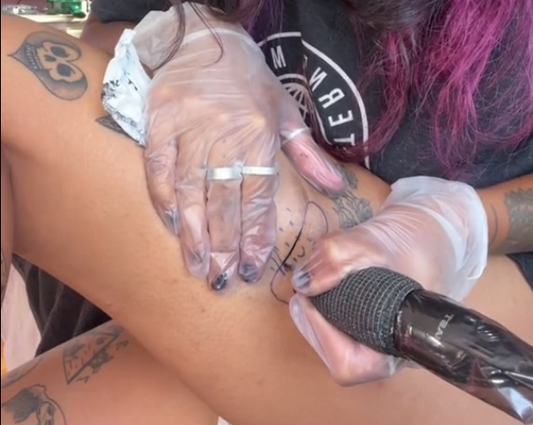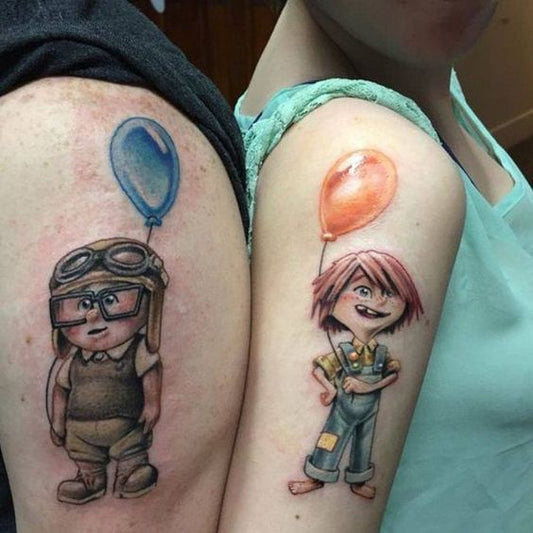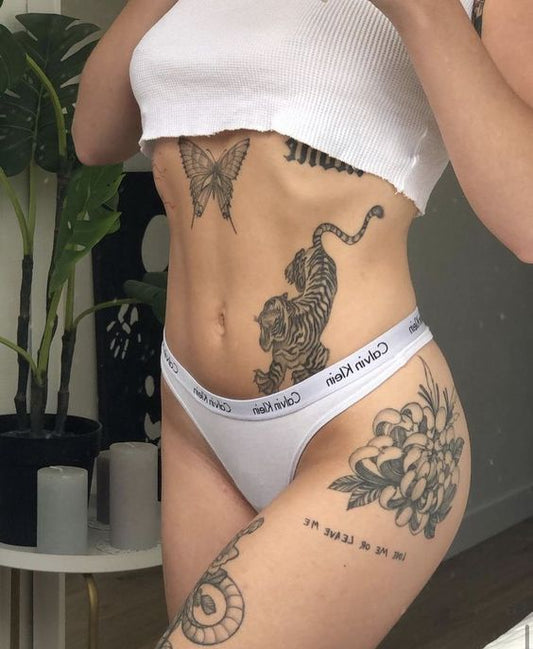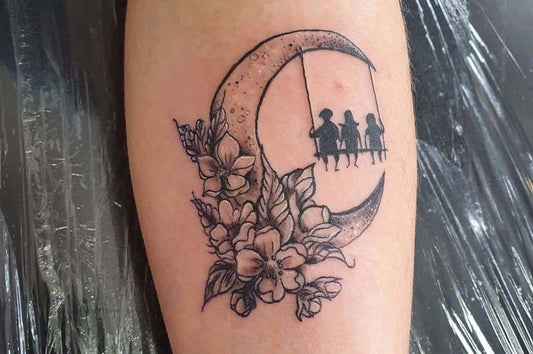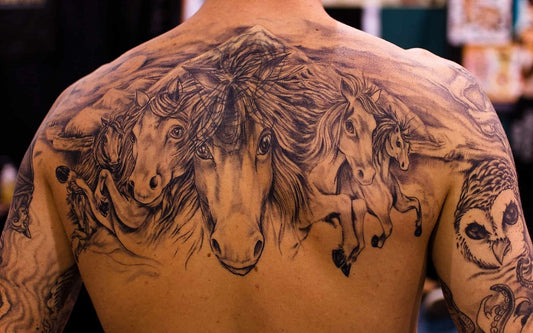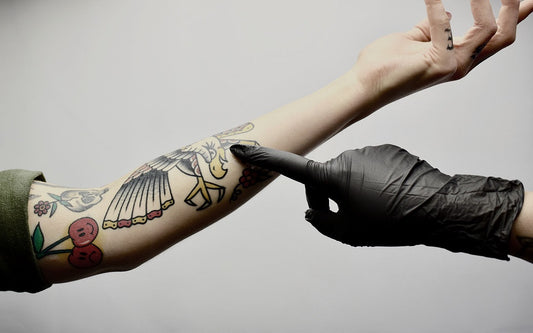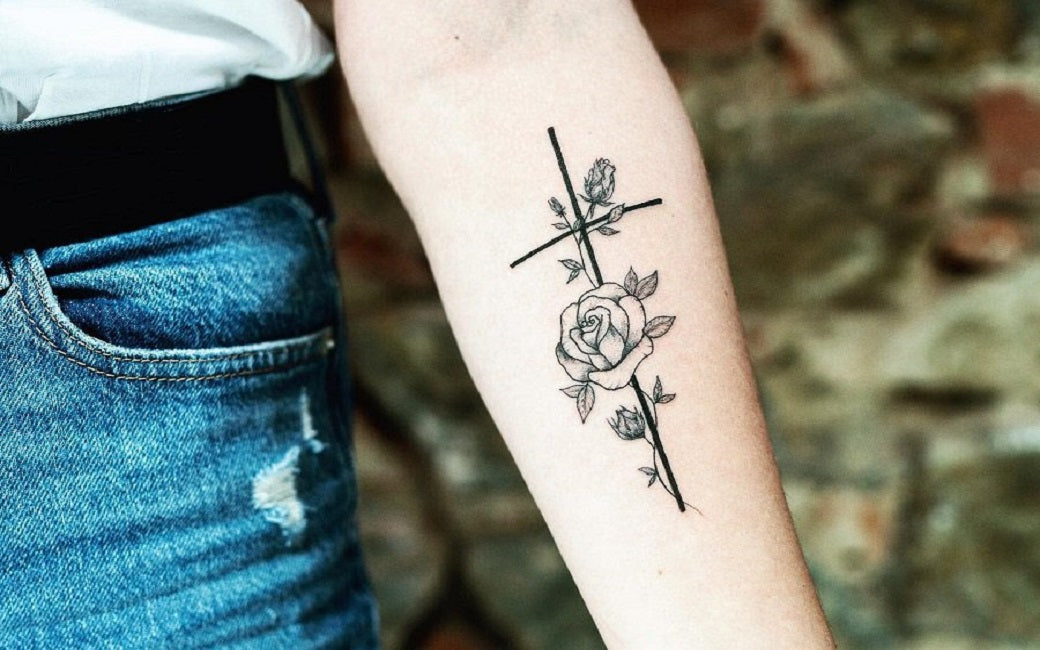
Why Do Tattoo Artists Not Use Numbing Cream?
Do you remember the first time you seriously considered getting a tattoo? As soon as you heard about the idea, you probably began searching for the perfect tattoo design. The one thing you realized later was that tattoos hurt. Generally speaking, tattoos do hurt to some extent. It is common for people to experience discomfort from tattoos, but depending on the location, size, and color of the tattoo, the pain can be quite severe.
Getting a tattoo is not a painless process, especially if you have sensitive skin or low pain tolerance. Many of us have given up after realizing this.
A numbing cream, however, is available. To reduce pain and discomfort, a magical ointment is applied to numb the potential treatment area. People don't really know how to handle the whole numbing cream moment going into the tattoo appointment for the first time; do we have to bring the cream or will the tattoo artist provide it?
1. Numbing Creams: What Are They?
Let's first examine the hype surrounding these numbing creams before moving onto the main topic. How do they work and what are they?
As the name implies, numbing creams are creams that act as some sort of anesthesia for the skin. It contains nerve-numbing ingredients such as Lidocaine and nerve blockers (tetracaine and benzocaine) that reduce pain and discomfort during certain pain-inducing treatments, in this case, tattooing. Therefore, numbing creams are basically local anesthetics that ensure your 'treatment' goes as smoothly as possible.
If you're familiar with skin numbing creams, you've probably heard of lidocaine, the active ingredient in most brands. Lidocaine is very potent and has the benefit of quick pain relief.
Lidocaine is found in skin numbing creams such as Dermoplast, LidoRx, and Lidoderm. Other active ingredients in skin numbing creams include:
▲ Benzocaine (found in Solarcaine, Dermoplast, and Lanacane)
▲ Pramoxine (found in Sarna Sensitive, Proctofoam, and Prax)
▲ Dibucaine (found in Noupocaine and Ryquecaine)
▲ Tetracaine (found in Ametop Gel, Pontocaine, and Viractin)
Most numbing creams are designed to stay effective between 3 and 5 hours, which makes them perfect for tattoo sessions that last for several hours. The use of numbing cream is expected to result in these results.
Sometimes these numbing creams don't deliver the results they promise. This is due to the fact that some of them have not been approved by the FDA. Over-the-counter numbing creams are, in fact, FDA-approved for use most of the time.
2. Numbing Creams: Are They Safe?
As we now know what numbing creams are, it is imperative that we discuss their safety when used and applied in general.
Since most of these creams are FDA-approved for over-the-counter use, one might assume they're completely safe. However, this only applies to sparingly and occasionally use the cream. Frequently using numbing creams can result in your skin actually absorbing the numbing agents, which can cause heart problems.
Even though they are safe for occasional use, the following information should be kept in mind;
- It is possible that some numbing creams will not be effective in some cases or people; they may not have the same anesthetic effect as a numbing cream
- A person who has been treated or tattooed may experience increased pain once the numbing effects have worn off
- It is important to keep in mind that some people can experience allergic reactions to numbing creams, especially during tattooing
- A tattoo artist's work can sometimes be affected by numbing cream, therefore, the final outcome of the tattoo can be affected

3. Is Numbing Cream Provided by Tattoo Artists to Their Clients?
Here's the problem; we can't answer this question with a simple yes or no. Tattoo artists generally provide numbing creams to their clients, especially if they request them beforehand, while others do not. For tattoo artists, it is a matter of personal preference.
Moreover, some tattoo artists advise their clients to bring their own numbing creams or simply frown upon the very words 'numbing cream'.
As a result, what we recommend is that you ask your tattoo artist about numbing cream when discussing a potential tattoo appointment or a design. You should ask if they provide the cream or if you need to bring your own. Take the tattoo artist's opinion on the cream's use. Keep looking for another tattoo artist if they seem dissatisfied with the idea and you aren't willing to go through the whole tattooing process without some numbing cream.
Ask about the numbing cream early on in your tattoo conversation. It is rude to cancel the tattoo a day before the appointment if you have to pay in advance. To determine whether you should continue looking, get all the information as soon as possible.
4. Conclusions
Tattoo artists seem to be divided over the use of numbing creams. The Tattoo Artist believes the client should be as comfortable as possible during the process, while others feel numbing creams take away from the original tattoo experience and make people less appreciative of the work and craft.
Thus, be sure to check with your tattoo artist about their stance on this issue as soon as possible. If they don't use the cream and advise you against it, you'll know whether they provide it or are fine with you bringing your own.
Regardless, make sure to always go with what feels right for you; if you truly have pain sensitivity issues, or simply want this experience to be as comfortable as possible, keep looking for tattoo artists willing to accommodate you.





